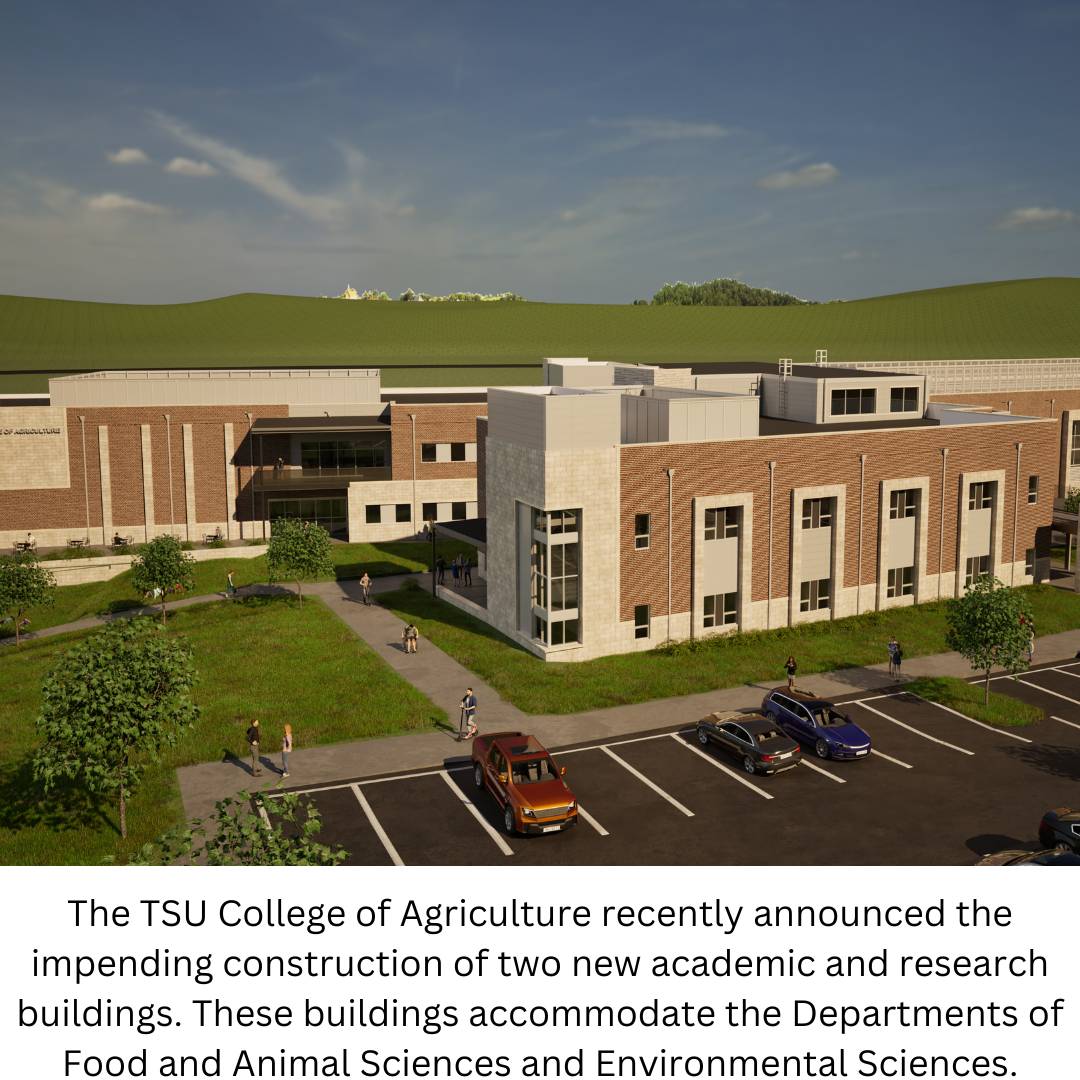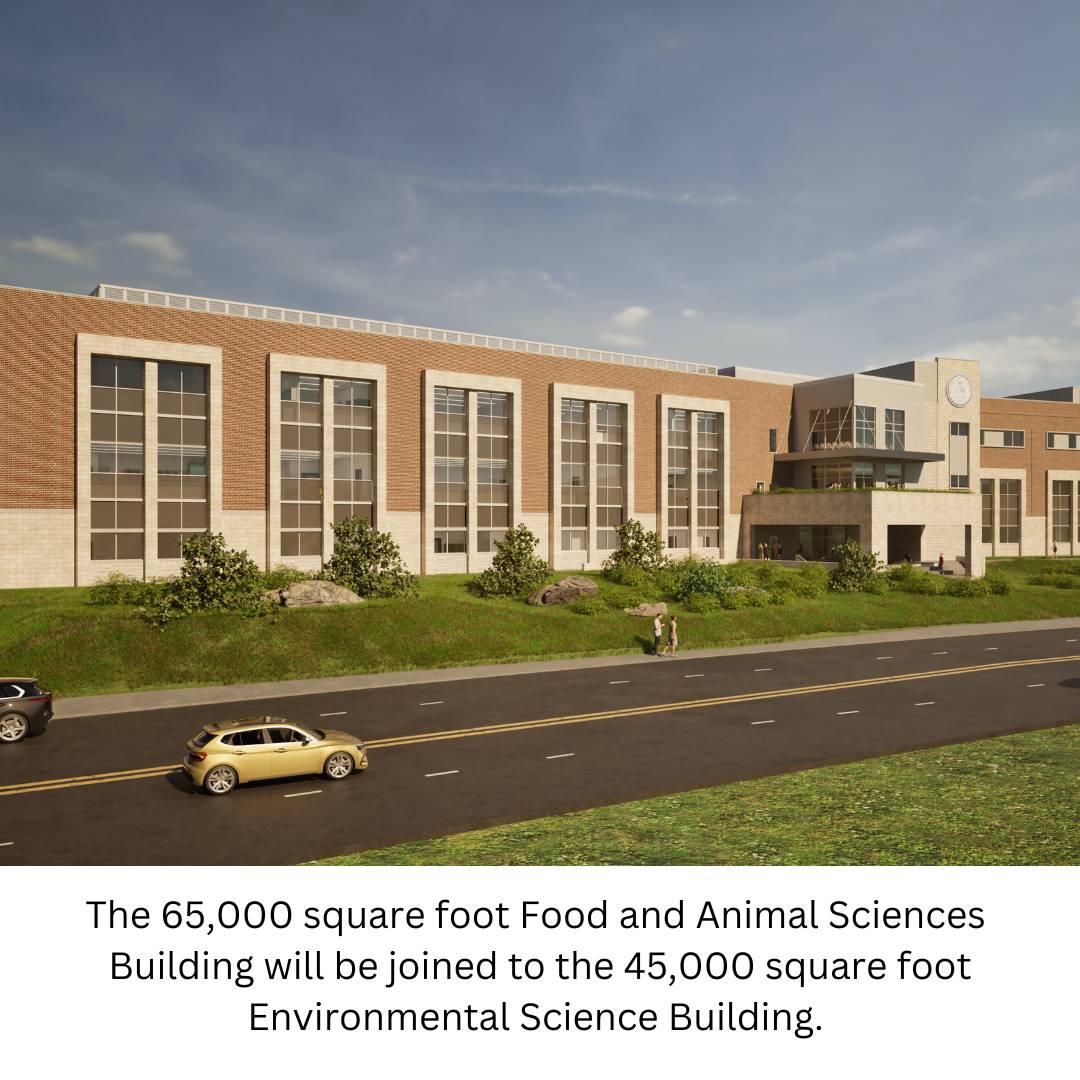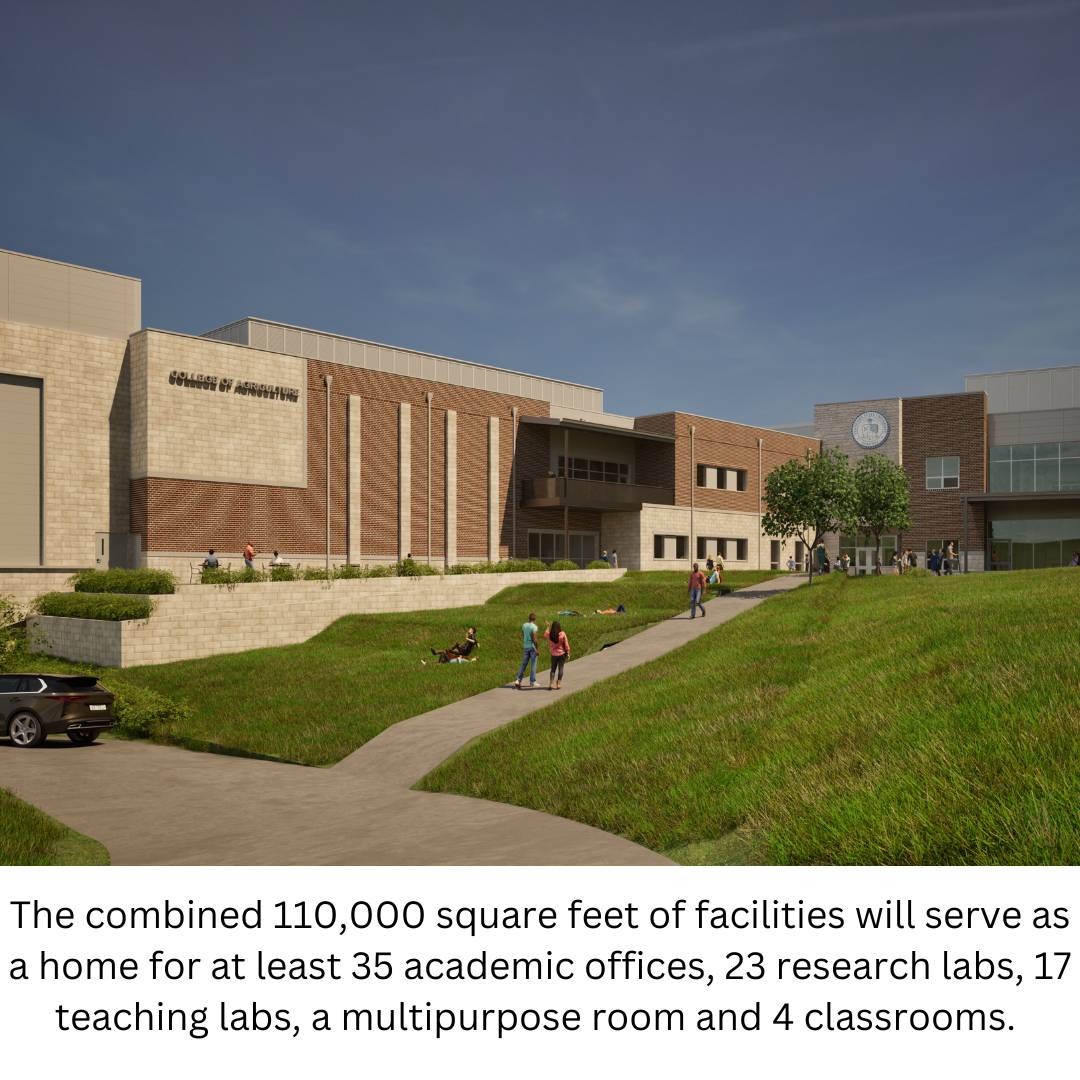- Home >
- College of Agriculture
- > News - Facility Growth
TSU Ag. Facility Growth on the Horizon
TSU College of Agriculture to construct a pair of academic and research buildings in the coming years
By Charlie Morrison
The Tennessee State University College of Agriculture (TSUAg) recently announced the impending construction of two new academic administration buildings, the Food and Animal Sciences Building and the Environmental Sciences Building.

The facilities will serve as respective academic, research and Extension bases of operations for the Departments of Food and Animal Sciences and Environmental Sciences. The combined, adjoining structure will encompass a total of more than 110,000 square feet and host 35 faculty offices, 23 research labs, 17 teaching labs, a multipurpose room, and 4 classrooms.
Each of the buildings will feature a lower level along with a first and second floor. Inside each facility will be research laboratories, teaching laboratories, laboratory support facilities, lecture halls, classrooms, offices, collective workspace and support facilities.
The Tennessee State Building Commission gave their final go-ahead for the early phase design of the project at their regularly scheduled meeting on Monday, December 16. TSUAg is working with architecture firms Orcutt|Winslow and Kline Swinney Associates on the project, and following an introduction by Mr. Dick Tracy, the Executive Director of Facilities Development for the Tennessee Board of Regents, Chip Jones (representing Orcutt) and Bart Kline (Kline Swinney) each made detailed design presentations to the State Building Commission.
The presentations were well-received and the project was given the green light by the Commission on Monday. With that necessary step completed, the real work of laying the foundations for the future of the College of Agriculture’s new facilities can begin.

“This has been a good day for the University and the College of Agriculture,” says Dr. Chandra Reddy, Dean of the College of Agriculture. “Our growth is only limited by our usable space at this point; student enrollment for our undergraduate and graduate programs in Agricultural Sciences continues to grow tremendously, as it has for the past 15 years.”
“Our research programs and Extension programs are better now than they’ve ever been before, and they continue to grow,” Reddy continues. “These buildings will only help us grow further in the future.”
For Reddy, the new facilities dovetail with the College new departmental structure. With now five independent departments operating at the College, students enjoy a hyper-focused learning environment. These new facilities, according to Dean Reddy, provide for even more high-impact, research-based learning.

“The buildings are very unique for connecting research and instruction, so their construction represents a really great opportunity,” continues Reddy. “From a teaching perspective, we will have the most modern teaching labs out there.”
“Agriculture is a very skill-based profession, not just a theoretical one, so the teaching labs will help us to provide experiential learning for students,” Reddy continues. “With respect to research these buildings will accommodate the future One Health Center, the future Precision Agriculture Center, the future Soil Health Center and the future Water Management Center so that we can assist Tennessee agriculture and its citizenry better.”
Along with Dr. Reddy, recently named TSU President Dwayne Tucker attended the State Building Commission meeting on Monday, and he too was pleased to see the positive growth for the College and the University.
“I am excited, on my first day, to see two new buildings approved for the University by the State Building Commission,” says Tucker. “These buildings symbolize the future growth of the University in spite of our current fiscal situation. Today’s actions also demonstrate the Tennessee state government‘s continued trust in TSU and ongoing support of our future.”
The timeline for the massive project has been set, and it will see the design phase continue through the spring of 2025 when the ground will be broken on the land at the corner of Schrader Lane and Dr. Walter S. Davis Boulevard. The goal is for the new facilities to open their doors to faculty members and students for the first time in the fall semester of the 2026-2027 academic year if all things go to plan.


